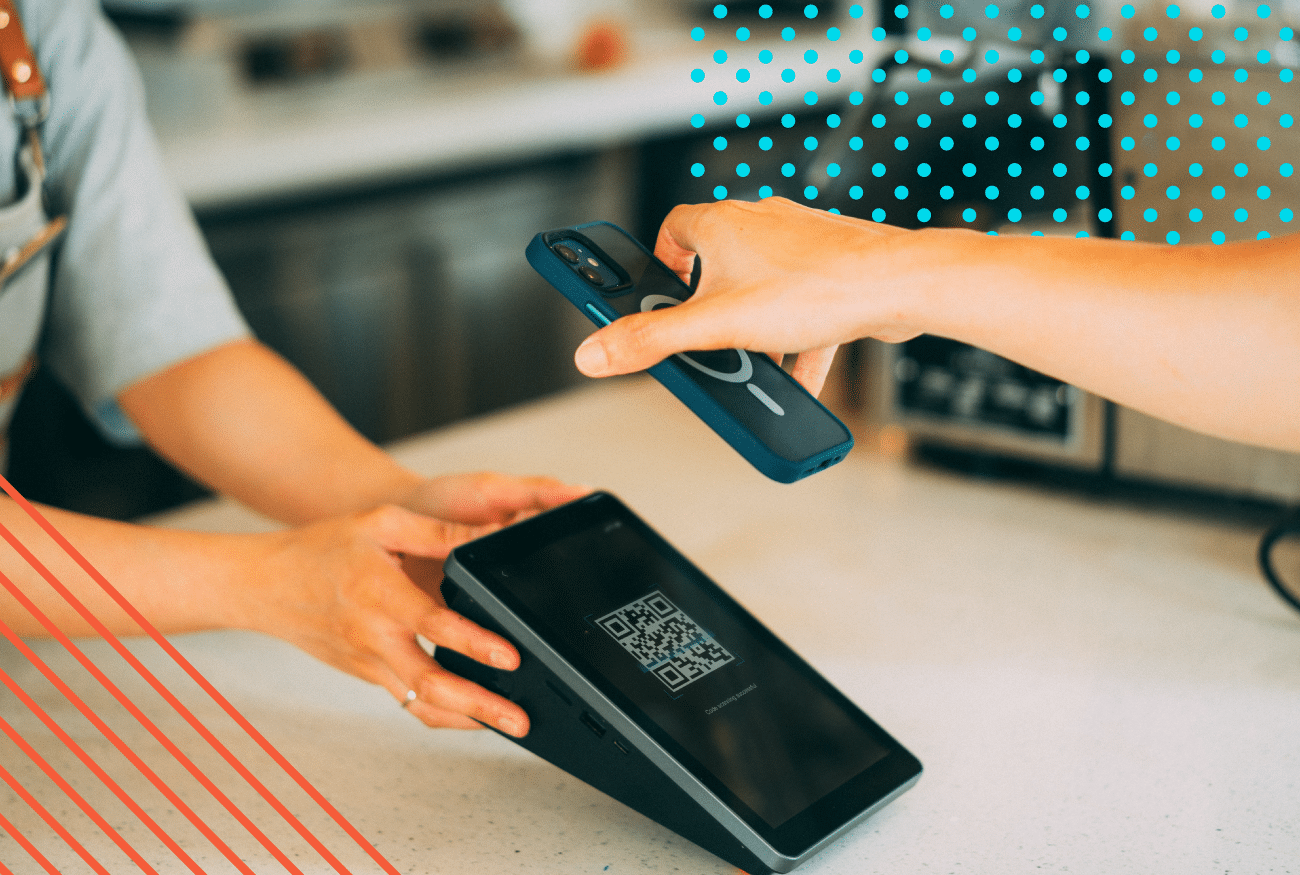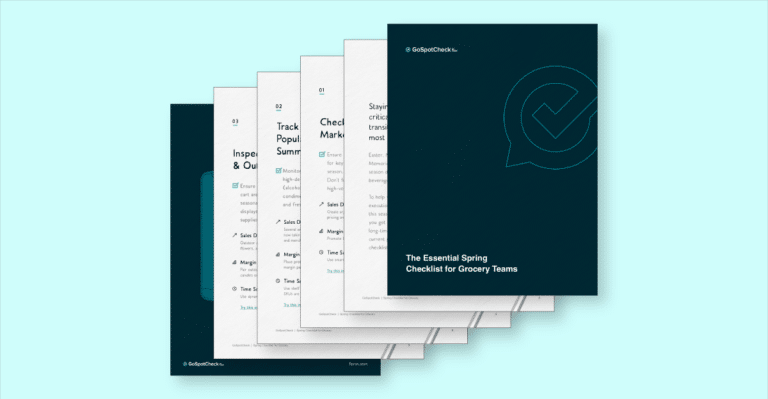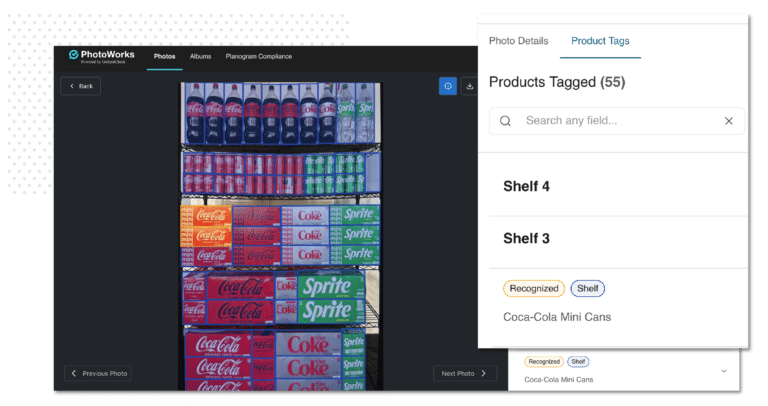Tech Trends for UK Retailers
Last week, FORM industry experts and solution engineers attended the Smart Retail Tech Expo in London, where some of the most prestigious brands showcased game-changing retail tech and spoke on the future of the industry. Our team had a great time learning from and connecting with some of the UK’s leading brands and showcasing our retail execution platform to teams from all over the world.
We heard from some incredible speakers from brands like Google, TikTok, and Amazon on topics and trends that are shaping the future of retail, including consumable AI, e-commerce experiences, and shifting consumer behaviors. Here are some of our biggest takeaways from the Expo and our thoughts on the future of retail tech.
The Current State of the UK Retail Sector
The beginning of 2023 marked the entry into the fourth year of a decade of upheaval and transformation. The retail market is still being shaped by the ongoing effects of COVID-19 and is now coping with record inflation of the euro and supply shortages amplified by the war in Ukraine. Last fall, more than half of the 19 countries that use the euro saw double-digit growth in consumer prices, while inflation in the UK reached over 10 percent.
Higher prices and lower supply mean disgruntled consumers. In fact, according to McKinsey, consumer confidence in Europe and the UK has dropped to levels even lower than in the first few months of the COVID-19 pandemic. As a result, retail shoppers are changing their habits—quickly and dramatically. In December 2022, more than 80% of Eurozone and UK consumers had or were planning to change their shopping behaviors, including switching brands and shopping channels.
Between uncertain economic headwinds, shifting consumer behaviors, and emerging technologies, how can retailers stay not only resilient, but also profitable? Let’s find out.
How Retailers Can Use Tech to Navigate The Evolving Market
Find (and Create) Efficiencies
With many economists predicting that inflation will continue to persist in 2023 in beyond, retailers will have to face difficult decisions, and many will be forced to reallocate resources. This isn’t necessarily a bad thing, though. When teams use tools and technologies to automate processes, they can free up their workforce for more human-centric functions, like employee engagement and customer connection. By identifying and creating areas of efficiency and streamlining operations, retailers can focus on optimizing other areas of their business to meet goals and drive results.
Use AI to Automate
There’s a reason AI is the topic on everyone’s mind—it’s proving to be one of the most revolutionary developments in tech for nearly every industry since the Internet. And who better to talk about AI than, well, an AI? We asked ChatGPT about the future of artificial intelligence in retail and how automation can help teams and retailers drive profits amidst inflation and other hurdles, and here’s what it said:
“AI is already transforming the retail industry, and its impact is only going to become more significant in the future. Retailers are leveraging AI to optimize pricing, improve customer experience, and streamline operations. With the help of automation, teams can make more informed decisions based on real-time data and insights, which can drive profits by reducing costs, increasing sales, and enhancing customer loyalty. AI-powered tools can also help retailers to better understand customer preferences and behavior, enabling them to offer more personalized and relevant experiences. However, it's important to note that AI should not replace human teams entirely, but rather work alongside them to maximize efficiency and effectiveness.”
Their response was not only impressive (and immediate) but it brings up an important point about the future of AI—in and out of the workplace. Retailers should begin to view AI as an extension of their team, not something that will replace them. When humans work alongside AI and other technologies, they’re generating opportunities to become more creative, productive, and empathetic.
Optimize in Real Time
In such a challenging and rapidly evolving landscape, those who succeed are the ones who constantly measure, track, and adjust their performance and execution in real time. McKinsey found that leading UK consumer goods brands and retailers are two times as likely to track and analyze ROI on a quarterly basis or more than other brands that do it less frequently.
By tracking execution and ROI consistently, retailers can be more agile and rapidly adjust to market changes, budget changes, and team changes.
Create Omnichannel Experiences
At the height of the pandemic, consumers were forced to move their shopping online, and e-commerce sales in the UK saw a nearly 50% increase in 2020. With lockdown measures lifting and confidence returning, consumers are craving an in-person shopping experience, with more people visiting UK shops in December 2022 than at any point since the pandemic started.
While shoppers prefer in-store shopping for its immediacy, immersion, and physical exploration of products, they’ve also gotten used to the benefits of online shopping: convenience, availability of products, discounts, reviews, and more.
To keep up with this evolving customer demand, retailers can begin to create and offer omnichannel experiences for their customers, bridging the gap between online and offline shopping. Stores can incorporate technologies like QR codes for more in-depth product information, augmented reality and virtual shopping experiences, and more options to create a seamless consumer journey like buy online, pickup in-store (BOPIS); buy in-store, ship to home; and others that blend the digital and physical shopping experience.
Adopting New Tools to Grow in the Market
With inflation likely to persist and shopper expectations always changing, UK retailers need to plan for the long term to offset higher prices and shifting consumer mindsets. For some, that may be simply adopting new tools to fill in the gaps and maintain a competitive advantage, and for others, it may mean a complete digital transformation. Regardless of their current position, prioritizing tech, automation, and AI will be key for retailers in delivering profitable growth and customer satisfaction now and in the years to come.
FORM offers the world’s only task management app powered by computer vision AI to drive smarter and faster execution, everywhere. Learn how our configurable retail management system software helps teams in the UK and beyond to streamline operations, enhance customer experience, and increase sales.




